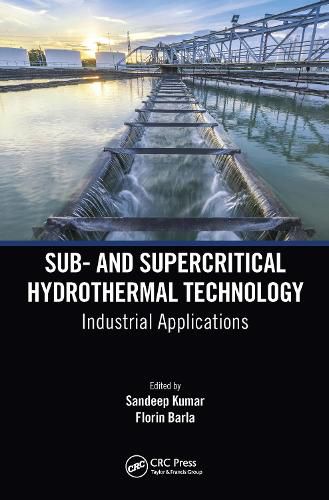Readings Newsletter
Become a Readings Member to make your shopping experience even easier.
Sign in or sign up for free!
You’re not far away from qualifying for FREE standard shipping within Australia
You’ve qualified for FREE standard shipping within Australia
The cart is loading…






Sub- and Supercritical Hydrothermal Technology: Industrial Applications offers a practical view of a variety of industrial applications and their challenges, offering a deep understanding of the application of sub- and supercritical fluids and their techno-economic viability.
This book covers a wide range of applications of hydrothermal processing that result in almost zero waste, high energy efficiency, sustainable chemical processes, and minimal impact over the life cycle. These applications include processing of hazardous waste, bioproducts, coal, lipids, heavy oil and bitumen, and carbon materials. The use of hot-compressed water instead of different organic solvents, such as methanol, acetone, and hexane, is an environmentally benign, green, and sustainable option which can help to design chemical processes that support green chemistry and engineering.
This book is pertinent for researchers and professionals in the fields of chemical engineering, industrial chemistry, environmental engineering, materials engineering, and manufacturing.
$9.00 standard shipping within Australia
FREE standard shipping within Australia for orders over $100.00
Express & International shipping calculated at checkout
Sub- and Supercritical Hydrothermal Technology: Industrial Applications offers a practical view of a variety of industrial applications and their challenges, offering a deep understanding of the application of sub- and supercritical fluids and their techno-economic viability.
This book covers a wide range of applications of hydrothermal processing that result in almost zero waste, high energy efficiency, sustainable chemical processes, and minimal impact over the life cycle. These applications include processing of hazardous waste, bioproducts, coal, lipids, heavy oil and bitumen, and carbon materials. The use of hot-compressed water instead of different organic solvents, such as methanol, acetone, and hexane, is an environmentally benign, green, and sustainable option which can help to design chemical processes that support green chemistry and engineering.
This book is pertinent for researchers and professionals in the fields of chemical engineering, industrial chemistry, environmental engineering, materials engineering, and manufacturing.